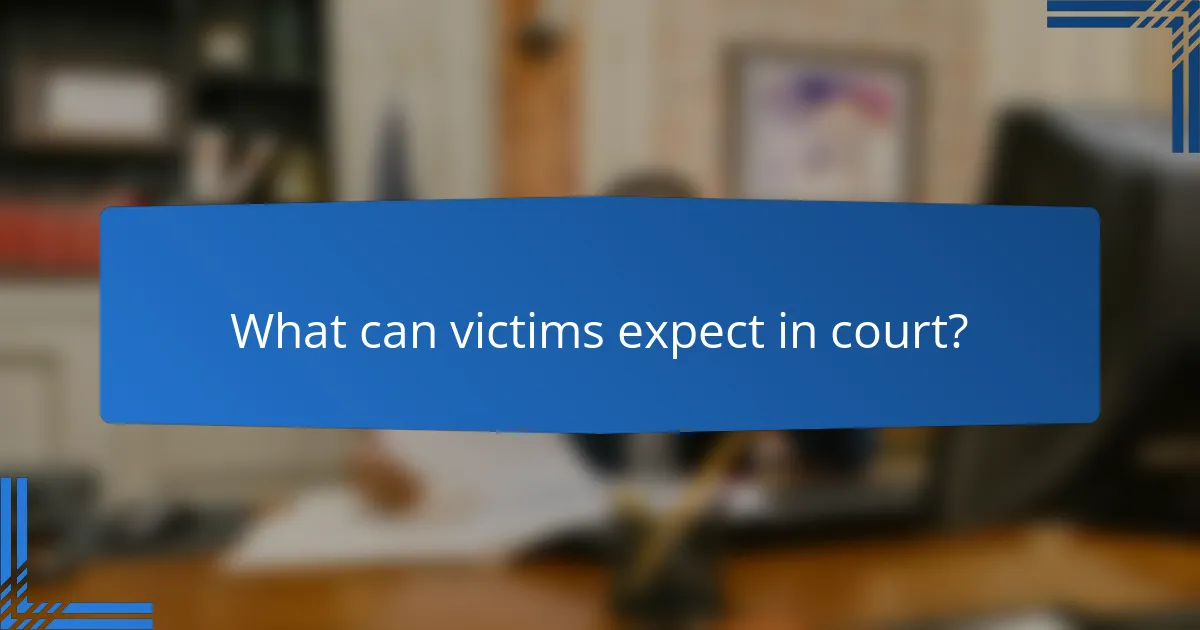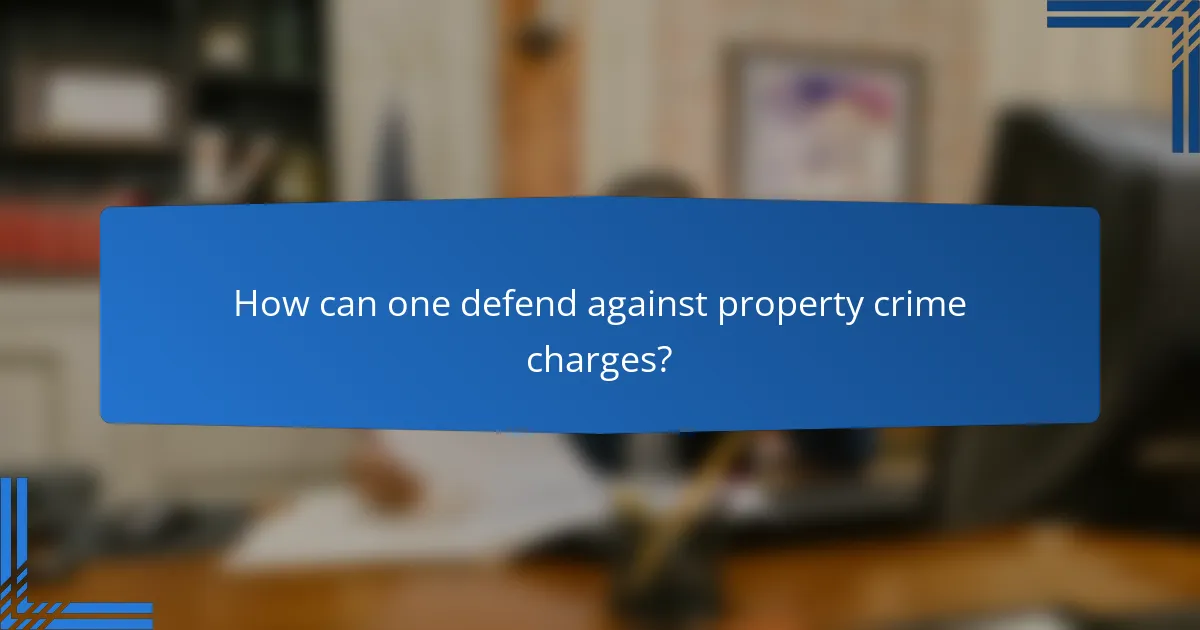Property crimes in the United States involve illegal activities that result in the theft or destruction of another person’s property, including burglaries, thefts, vandalism, arson, and shoplifting. The legal framework surrounding these crimes varies by state, affecting how they are defined, prosecuted, and penalized. Understanding the legal process, which includes investigation and trial stages, is essential for ensuring justice for both victims and offenders.

What are the types of property crimes in the United States?
Property crimes in the United States encompass various illegal activities that involve the theft or destruction of someone else’s property. Common types include burglaries, thefts, vandalism, arson, and shoplifting, each with distinct legal implications and consequences.
Burglaries
Burglaries involve unlawfully entering a building with the intent to commit a crime, typically theft. This crime can occur in residential homes, commercial properties, or other structures. Penalties for burglary can vary widely, often depending on whether it was committed with or without a weapon and whether the premises were occupied.
To prevent burglaries, homeowners should consider installing security systems, using deadbolts, and maintaining good lighting around their properties. Awareness of neighborhood crime rates can also help in assessing risk.
Thefts
Thefts refer to the unlawful taking of someone else’s property with the intent to permanently deprive the owner of it. This category includes various forms, such as larceny and grand theft, which differ based on the value of the stolen items. In many jurisdictions, theft of items valued above a certain threshold may lead to felony charges.
Individuals should be cautious about leaving valuables in plain sight, especially in vehicles or public places. Engaging in community watch programs can also enhance safety and deter theft.
Vandalism
Vandalism is the intentional destruction or defacement of property belonging to another person or entity. This can include graffiti, breaking windows, or damaging vehicles. Legal consequences for vandalism can range from fines to imprisonment, depending on the severity of the damage.
To mitigate the risk of vandalism, property owners can invest in surveillance cameras and maintain clear sightlines around their properties. Community involvement in local events can also foster a sense of ownership and deter vandalism.
Arson
Arson is the willful and malicious burning or exploding of property, which can include buildings, vehicles, or forests. This crime is taken very seriously due to the potential for loss of life and extensive damage. Penalties for arson can be severe, often resulting in lengthy prison sentences.
Fire prevention measures, such as maintaining clear zones around structures and adhering to local fire codes, are crucial in reducing the risk of arson. Community education on fire safety can also play a significant role in prevention.
Shoplifting
Shoplifting is the act of stealing goods from a retail establishment. This crime can range from minor thefts of inexpensive items to more significant thefts involving higher-value merchandise. Retailers often employ various security measures, including surveillance cameras and loss prevention personnel, to combat shoplifting.
To avoid misunderstandings, shoppers should be aware of store policies regarding returns and exchanges. Retailers may also offer educational programs to inform customers about the consequences of shoplifting, which can include criminal charges and civil penalties.

How do property crime laws vary by state?
Property crime laws differ significantly across states, impacting definitions, classifications, and penalties. Each state has its own statutes that dictate how property crimes are prosecuted and what consequences offenders may face.
State-specific statutes
Each state has unique laws that define property crimes, which can include burglary, theft, vandalism, and trespassing. For instance, some states may classify theft based on the value of the stolen property, while others might have specific laws for different types of property crimes. It’s crucial to consult local laws to understand the specific definitions and classifications applicable in your state.
Additionally, states may have varying requirements for proving intent or the circumstances surrounding the crime. For example, some jurisdictions may require evidence of intent to permanently deprive the owner of their property, while others may not.
Penalties and sentencing
Penalties for property crimes can range from fines to imprisonment, depending on the severity of the offense and the state’s laws. Misdemeanor property crimes may result in fines or short jail sentences, while felony charges can lead to significant prison time and larger fines. For example, a first-time offender in some states might face a few months in jail for a minor theft, while repeat offenders could face several years for more serious offenses.
Sentencing guidelines also vary, with some states offering alternatives like probation or community service for first-time offenders. Understanding the potential penalties in your state can help individuals make informed decisions if they are facing charges or involved in legal proceedings related to property crimes.

What is the legal process for property crimes?
The legal process for property crimes involves several key stages, from investigation to trial. Each step is crucial for ensuring that justice is served and that the rights of both the accused and the victim are upheld.
Investigation procedures
Investigation procedures for property crimes typically begin when a crime is reported to law enforcement. Officers gather evidence, interview witnesses, and may collect forensic data to establish a timeline and identify suspects.
In many cases, investigators will also review surveillance footage and analyze physical evidence found at the crime scene. This thorough approach helps build a strong case for prosecution.
Arrest and charges
Once sufficient evidence is gathered, law enforcement may arrest a suspect. The arrest usually leads to the filing of formal charges, which outline the specific property crime committed, such as burglary or vandalism.
The severity of charges can vary based on factors like the value of stolen property or whether the crime involved breaking and entering. Understanding the potential penalties is essential for both defendants and victims.
Pre-trial processes
Pre-trial processes include arraignment, where the accused is formally charged and enters a plea. This stage may also involve bail hearings, where the court decides whether to release the defendant before trial.
Additionally, both parties may engage in plea negotiations, which can lead to a settlement without going to trial. This can save time and resources for the court system and the involved parties.
Trial proceedings
During trial proceedings, both the prosecution and defense present their cases, including evidence and witness testimonies. The judge or jury then deliberates to determine the defendant’s guilt or innocence based on the evidence presented.
It’s important for defendants to understand their rights during this process, including the right to a fair trial and legal representation. The outcome can significantly impact the lives of everyone involved, making preparation and understanding of the legal framework essential.

What can victims expect in court?
Victims in court can expect to present their experiences and feelings regarding the crime, which can significantly influence the case outcome. Understanding the legal process and what to anticipate can help victims feel more prepared and supported during this challenging time.
Victim impact statements
Victim impact statements allow individuals to express how the crime has affected their lives emotionally, physically, and financially. These statements are typically presented during sentencing and can help the judge understand the full consequences of the crime.
When preparing a victim impact statement, it is beneficial to be clear and concise. Focus on specific examples of how the crime has impacted daily life, relationships, and overall well-being. This personal touch can resonate more deeply with the court.
Testifying in court
Testifying in court is a critical part of the legal process for victims, as it provides an opportunity to share their story directly with the judge and jury. Victims may be asked to recount the events of the crime and discuss its impact, which can be both empowering and daunting.
To prepare for testifying, victims should consider practicing their testimony with a trusted friend or legal advisor. Familiarizing themselves with the courtroom environment and understanding the types of questions they may face can help reduce anxiety. It’s also important to remain calm and composed during the testimony, as emotional responses can affect how the information is perceived.

How can one defend against property crime charges?
Defending against property crime charges involves presenting evidence or arguments that challenge the prosecution’s case. Common defenses include proving lack of intent, establishing an alibi, or demonstrating that the accused had permission to use the property in question.
Common defense strategies
Several defense strategies can be employed in property crime cases. One effective approach is to argue that the defendant did not have the intent to commit a crime, which is often a necessary element for conviction. For example, if someone mistakenly enters a property believing it is theirs, this could negate criminal intent.
Another strategy is to establish an alibi, showing that the accused was not present at the scene during the alleged crime. Additionally, demonstrating that the property owner consented to the use of the property can also serve as a solid defense.
Hiring a criminal defense attorney
Engaging a criminal defense attorney is crucial for navigating property crime charges effectively. An experienced attorney can assess the specifics of the case, identify viable defense strategies, and represent the accused in court. They can also negotiate plea deals or reductions in charges, which may lead to more favorable outcomes.
When selecting an attorney, consider their experience with property crime cases and their familiarity with local laws and regulations. A knowledgeable attorney can provide tailored advice and help the defendant understand their rights and options throughout the legal process.
